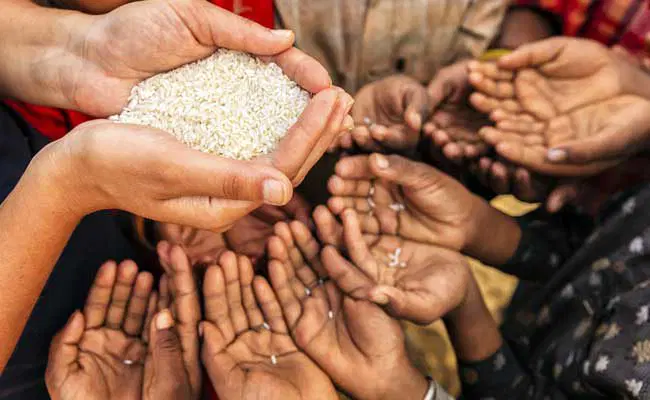Monday, 23 February 2026

India has taken a decisive step in the global fight against hunger, partnering with the World Food Programme (WFP) through a Letter of Intent (LoI) that will enable the supply of fortified rice from India to vulnerable populations in crisis zones worldwide. The agreement, signed in New Delhi, positions India as a key contributor of both food security and nutrition solutions at a time of rising humanitarian need and strained global aid budgets.
The initiative leverages India’s status as an agricultural surplus nation, offering WFP a dependable source of fortified rice to meet emergency and long-term nutritional requirements. It also represents the fruition of discussions held at the WFP Executive Board side event in Rome in February 2025, where India and WFP explored avenues for collaboration.
“India is committed to the principle of Vasudhaiva Kutumbakam—the earth is one family—and to collective responsibility towards each other and our shared future,” said Sanjeev Chopra, Secretary, Department of Food and Public Distribution (DFPD). “Our humanitarian support for communities in need reflects this approach.”
WFP leaders hailed the partnership as a critical boost to their mission. “We deeply appreciate India’s steadfast commitment to fostering a food-secure and peaceful world,” said Carl Skau, Deputy Executive Director, WFP. “This collaboration reflects our joint intent to strengthen global efforts and ensure sustained support for those in need.”
Beyond fortified rice, India and WFP also reviewed ongoing initiatives including supply chain optimisation, fortified rice rollout, Annapurti grain ATMs, Jan Poshan Kendras, smart warehousing technologies, and Flospan mobile storage units, underlining the breadth of their cooperation.
Present at the signing were Ashutosh Agnihotri, Chairman and Managing Director, Food Corporation of India; Samir Wanmali, Regional Director, WFP APARO; Elisabeth Faure, WFP India Country Director; and senior officers from the DFPD.
This partnership marks a pivotal moment in India’s role as a provider of global public goods—bridging its domestic surpluses with the world’s most urgent humanitarian needs, and reaffirming its position at the frontline of collective action against hunger.